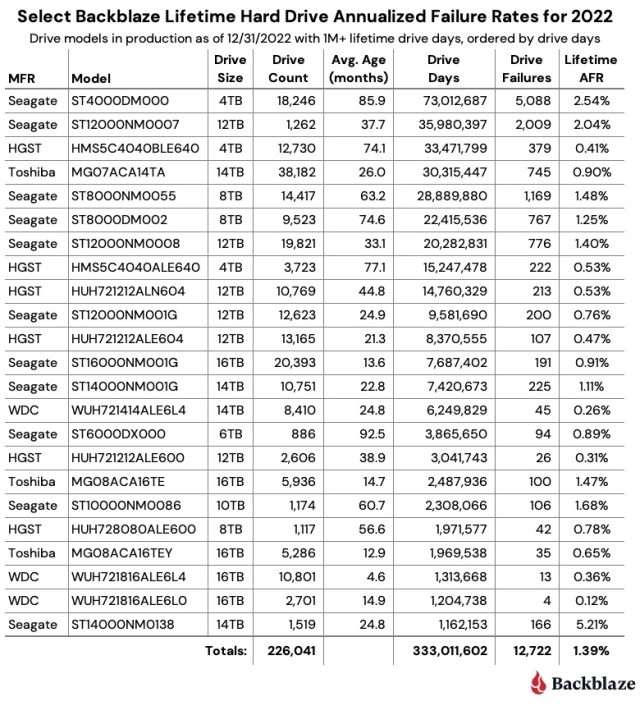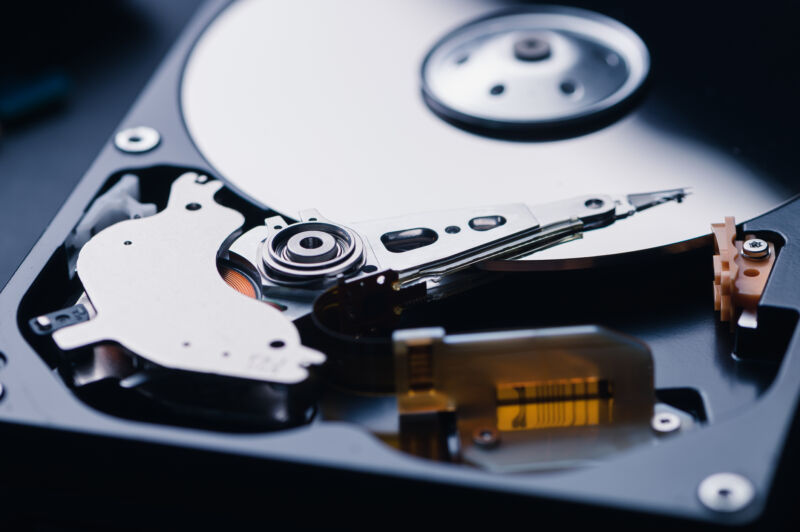SSDs have usurped hard disk drives (HDDs) when it comes to performance, but whether building a network-attached storage (NAS) or having high-capacity needs on a budget, plenty of people still rely on spinning platters. Older drives that have seen a lot of use, however, may not be as reliable as before. Data Backblaze shared this week highlights how a hard drive's average failure rate (AFR) can increase with age.
Since 2013, Backblaze, a backup and cloud storage company, has published an annual report analyzing the AFRs of hard drives in its data center. The 2022 report shared on Tuesday examines 230,921 hard drives across 29 models from HGST, Seagate, Toshiba, and WDC, with capacities ranging from 4–16TB. All models included at least 60 drives that were not previously used for testing.
Keep in mind that the sample group only consists of drives that Backblaze had on hand, and they are of varying ages, with some used for more days than others. However, Backblaze's report does give us a unique look into the results of long-term hard drive use.
In case you needed a reminder of the morbid nature of time, Backblaze's report shows evidence of hard drives' AFR increasing with age. That's not surprising news, but Backblaze is providing the data to paint a picture of what that looks like.
Backblaze's analysis of its findings said that the graph below "shows that the older drives, when grouped by size, fail more often."

Backblaze noted that an increase in AFR as an HDD ages falls in line with the bathtub curve, where failures tend to be higher upon release before dropping, stabilizing, and then increasing as the product ages. Backblaze said that the average failure rate of its hard drives was 1.01 percent in 2021 and 1.37 percent in 2022.
"The aging of our fleet of hard drives does appear to be the most logical reason for the increased AFR in 2022. We could dig in further, but that is probably moot at this point," Backblaze's blog said.

The oldest (average age of 92.5 months) hard drive Backblaze tested was a 6TB Seagate (ST6000DX000). Its AFR was 0.11 percent in 2021 and 0.68 percent in 2022. Backblaze said this was "a very respectable number any time, but especially after nearly eight years."
Seagate, followed by Toshiba, topped Backblaze's chart grouping AFRs by vendor, but most of the Seagate drives are much older than the rest of the drives tested.
"In general, Seagate drives are less expensive and their failure rates are typically higher in our environment," Backblaze said. "But, their failure rates are typically not high enough to make them less cost-effective over their lifetime. You could make a good case that for us, many Seagate drive models are just as cost-effective as more expensive drives."



3175x175(CURRENT).thumb.jpg.b05acc060982b36f5891ba728e6d953c.jpg)

Recommended Comments
There are no comments to display.
Join the conversation
You can post now and register later. If you have an account, sign in now to post with your account.
Note: Your post will require moderator approval before it will be visible.